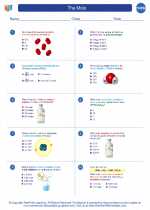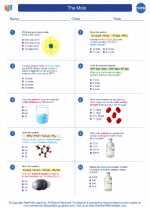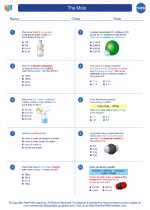Center: Atomic Structure and Chemistry
In the context of high school chemistry, the term "center" often refers to the nucleus of an atom. The nucleus is the central part of an atom, containing protons and neutrons. Understanding the structure and properties of the nucleus is crucial for comprehending various chemical concepts.
Key Concepts to Understand:
- Nucleus: The nucleus contains protons, which have a positive charge, and neutrons, which have no charge. The number of protons determines the element's identity, while the total number of protons and neutrons determines the atomic mass.
- Atomic Number: This is the number of protons in the nucleus. It is unique to each element and is represented by the symbol "Z" in chemistry.
- Atomic Mass: This is the total mass of the protons and neutrons in an atom's nucleus. It is represented by the symbol "A" in chemistry.
- Isotopes: Atoms of the same element with different numbers of neutrons are called isotopes. They have the same atomic number but different atomic masses.
- Nuclear Stability: The stability of a nucleus is influenced by the balance of protons and neutrons. This affects the likelihood of radioactive decay and the formation of isotopes.
Study Guide:
When studying the concept of "center" in the context of atomic structure and chemistry, it's essential to focus on the following areas:
- Memorize the definitions of atomic number, atomic mass, and isotopes, and practice identifying these properties for different elements.
- Understand the concept of nuclear stability and how it relates to the balance of protons and neutrons in the nucleus. Practice determining the stability of different isotopes.
- Explore the implications of nuclear stability, such as the occurrence of radioactive decay and the significance of isotopes in various scientific and industrial applications.
- Engage in problem-solving exercises related to calculating atomic mass, understanding isotopic notation, and predicting the behavior of isotopes in chemical reactions.
By mastering these fundamental concepts and engaging in regular practice, you can develop a strong understanding of the "center" of atoms and its significance in the field of chemistry.
.◂Chemistry Worksheets and Study Guides High School. The Mole
The resources above cover the following skills:
Chemistry II
Reactions
Use mathematical representations to analyze the proportion and quantity of particles in solution.
Equilibrium
Analyze and interpret data to explain the change in concentration of products and reactants, and the stable state achieved under reversible conditions.



